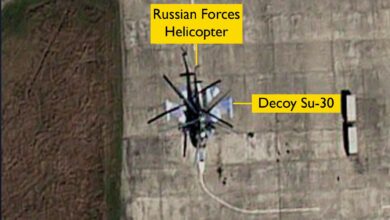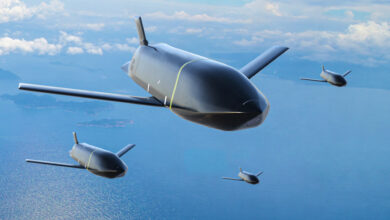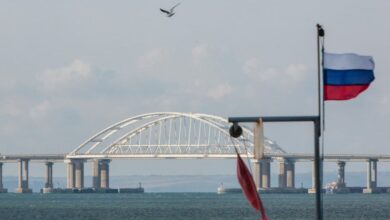Turkey will receive first Russian S-400 air defense systems in 2019
Russia has agreed to bring forward to July 2019 the delivery to Turkey of S-400 air defence missile systems, a Turkish official said, but a Russian source told Tass that the deliveries were scheduled for October 2019.
“We brought forward the delivery date in the contract signed with Russia for the acquisition of S-400 systems and got an earlier date of July 2019,” Ismail Demir, Turkish Defence Industries undersecretary, tweeted late on Tuesday, April 3.
His announcement came after Russian President Vladimir Putin met for several hours with Turkish counterpart Recep Tayyip Erdogan in Ankara.
At a press conference after the meeting, Putin said the pair had decided to “speed up” the delivery of the S-400 missile systems, without providing a precise date.
However, an unnamed source in military and diplomatic circles told Tass on Wednesday that the systems would not be delivered until October 2019.
Russian officials had said in December that the first deliveries in the $2 billion deal were likely to begin at the end of 2019 or beginning of 2020.
“Under the recently signed appendix to the contract, the delivery of the two-battalion regiment of S-400 systems to Turkey will be carried out in October 2019 instead of early 2020, i.e. actually four months earlier,” the source said.
The regiment set “includes a command post, radar stations, launchers, missiles, power-generating plant and auxiliary equipment, spare parts and accessories,” the source said, adding that it “will be delivered to Turkey across the Black Sea by three vessels from the port of Novorossiysk.”
Russia’s Federal Service for Military and Technical Cooperation has not yet commented on the deliveries.
Putin and Erdogan have forged an increasingly close alliance in recent months, from burgeoning energy ties to holding talks to end the Syria crisis.
In a sign of the importance of the partnership, Putin’s visit to Turkey is his first trip abroad since he won a historic fourth presidential mandate in March 18 polls.
Erdogan said Tuesday that Turkey was in no mood to listen to criticism from the West over the purchase of the S-400 systems, saying “this issue is now closed.”
Concerns have been raised by Turkey’s NATO allies about data security with the S-400 system, particularly around the F-35.
Turkey’s Undersecretariat for Defence Industries (SSM) wants to connect the F-35 systems with the Turkish Air Force information network, HvBS. If the S-400 is also connected to the HvBS, there is a risk that data collected by the advanced Joint Strike Fighter’s sensors may end up being transmitted to Russia.
According to Russian press reports, Turkey is interested in a technology transfer and even joint production of the S-400 with Russia, a prospect that has been resisted by some in the Moscow security services. Turkish Foreign Minister Mevlut Cavusoglu said in October that Turkey could annul the S-400 deal if Moscow refuses to transfer technology.
Putin refused to discuss the issue saying “these are exclusively commercial questions” rather than political ones.
Russia’s S-400 Triumf long- and medium-range air defense missile system can use five different missile types to destroy aerial targets including planes and cruise and ballistic missiles at a range of 40 to 400 km (25 to 250 miles) at altitudes of up to 30 km.
However, Turkey is not going to rely solely on the S-400 for air defense. Turkish Defense Minister Nurettin Canikli said on November 12 that Turkey agreed with Eurosam to develop an air defense missile system and to own the technology with Turkey’s “own local resources.” The previous day, Canikli signed a letter of intent with the defense ministers of France and Italy, paving the way for Turkey’s purchase of the Eurosam SAMP-T launcher systems and Aster 30 surface-to-air missiles.
Qatar, India and Saudi Arabia are all currently in talks with Russia to buy S-400 systems.
With reporting from AFP












2 Comments